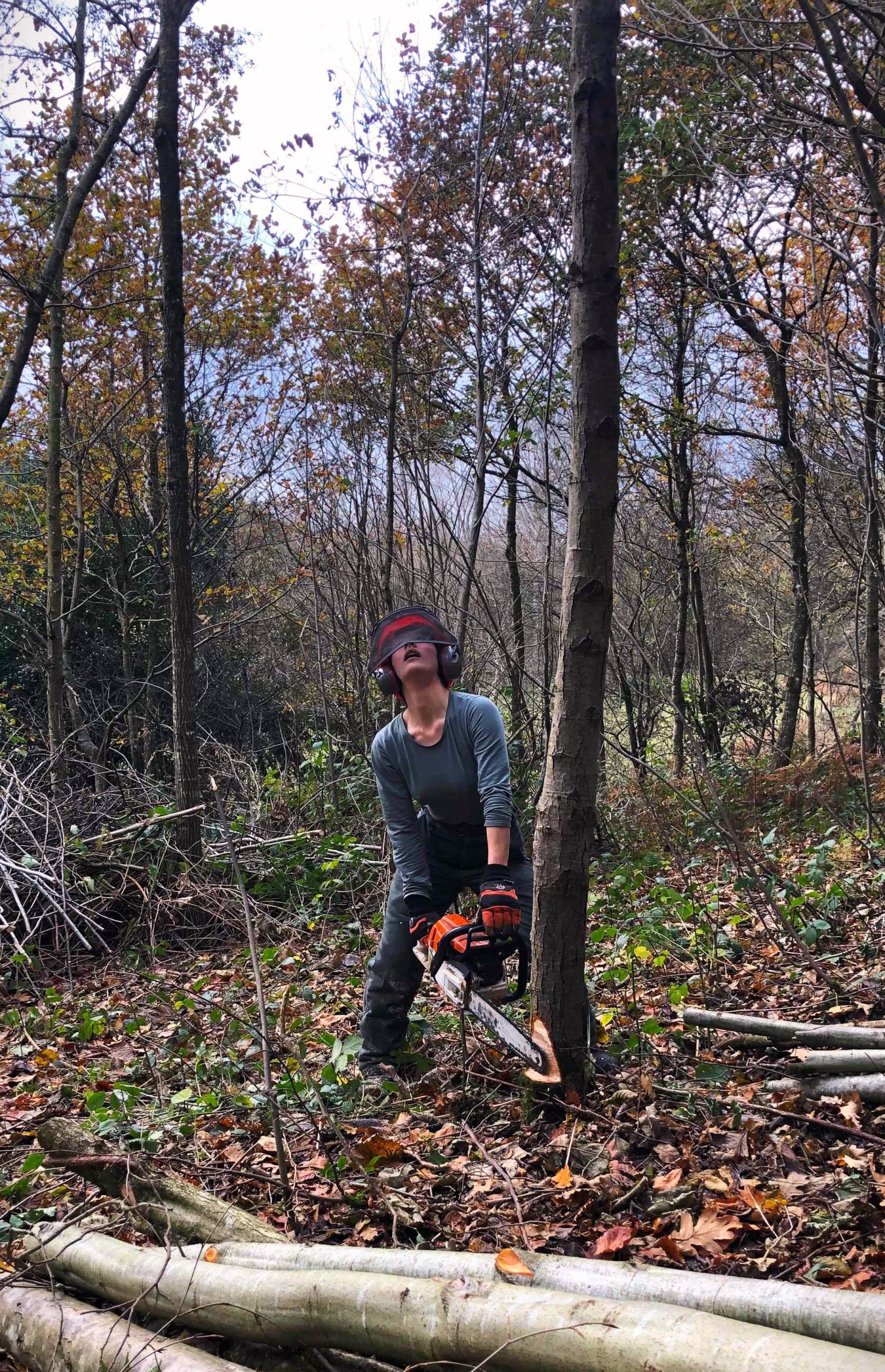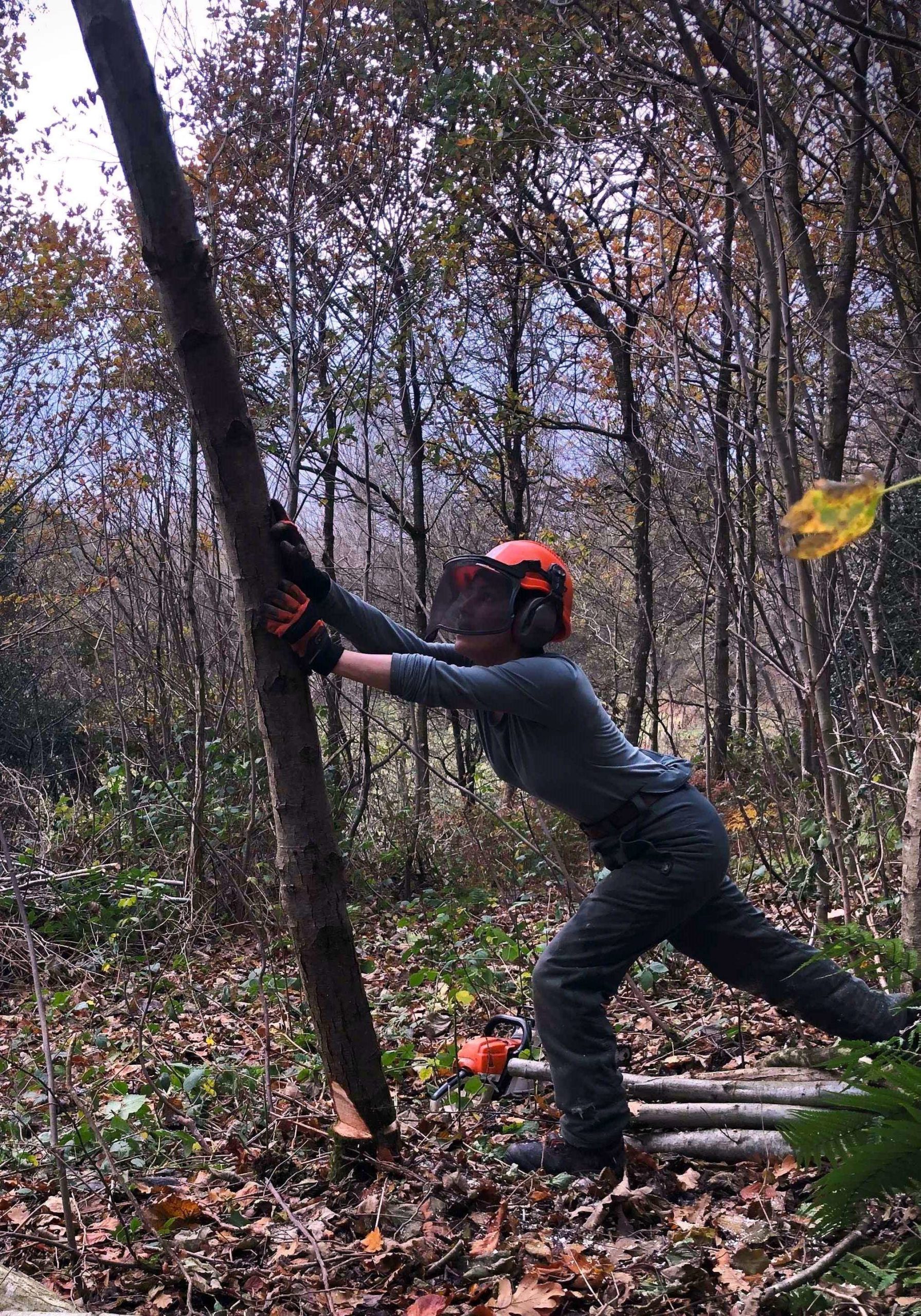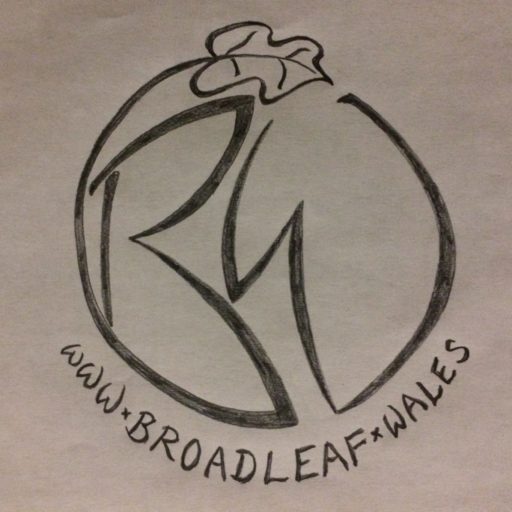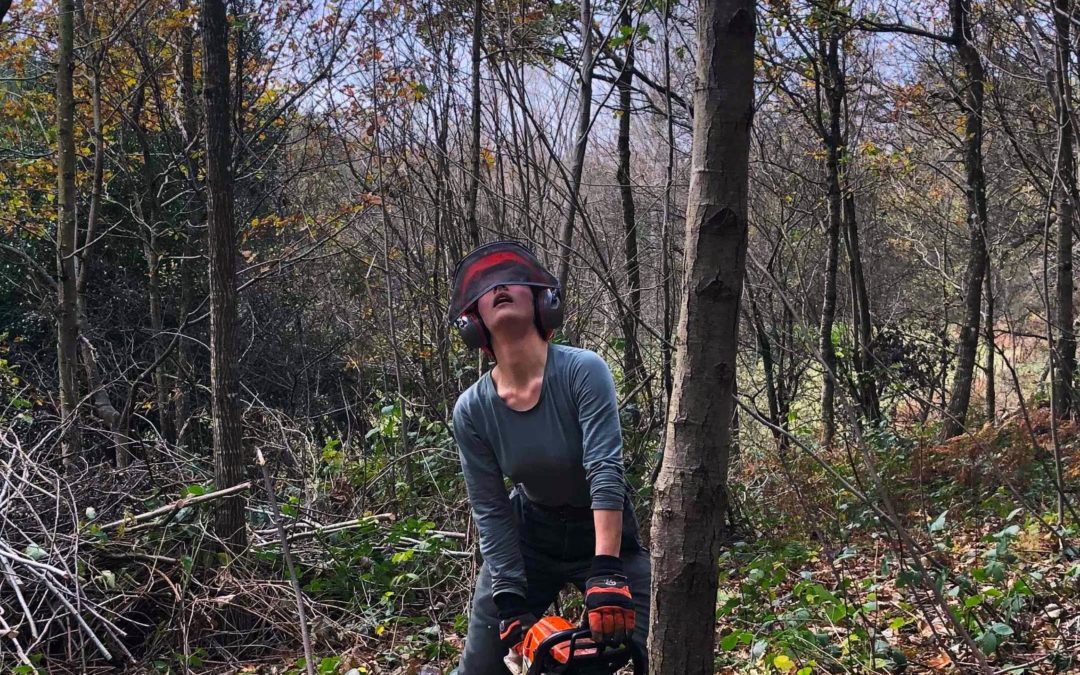
Dog’s tooth felling cuts
I had been keenly interested in the work of Broadleaf Wales for some time, so when a conversation through the Land Workers Alliance forestry network sparked an invitation to come and volunteer, I jumped at the chance. After the long slog of finishing my degree, I was ready to ditch the laptop and get stuck in with practical woodland management. Right away, I was inspired by how Ruth and David have transformed what less than three decades ago was mostly cattle pasture into mixed broadleaf woodland, and how they are already beginning to realise their vision of producing beautiful hardwood timber from the land. Over the coming years, this carefully tended woodland will provide an incredible timber resource for the local area without ever being clear-felled, and I wanted to learn as much as I could about the CCF principles Ruth and David are following to make this happen.
In my first week, I learned about the importance of early and continued intervention through formative and high pruning. Starting in the youngest planting block of roughly 10-year-old trees, Ruth showed me how to encourage the young trees to develop tall, straight stems by selecting a “leader” shoot and pruning off branches that split or forked away from the main leader. Once the form had been established, we worked up the stem pruning off side branches to ensure the greatest possible length of strong, knot-free timber. We applied the same high pruning methods to the older stands of trees, going through the safe and effective use of long-handled pole pruning saws to reach the highest side branches. I found pruning to be a deeply meditative task that I could easily spend hours on. I began to develop my understanding of the decision-making process and the benefit of spending lots of time in the woods, with the trees, paying close attention to how they respond to pruning over time and recognising what the most vigorous trees needed to grow into fine timber. In this first week I also learned how to split and point Sweet Chestnut for fence posts; a resourceful use of early thinnings from the woods.
My second week was taken up with my chainsaw maintenance, cross-cutting and small-felling course. This was part funded through the Welsh Focus on Forestry First skills development fund which Ruth had directed me towards earlier in the year. Fortunately, the felling days were held at Bron Haul, meaning I didn’t have to travel too far! Over the week I familiarised myself with the proper care and maintenance of a saw and learned the necessary felling cuts for small trees. Receiving my ticket was a proud moment, and this licence will be vital for opening up future opportunities for forestry work.

Paying attention to the canopy felling gap
During my third week, I had the chance to apply my newfound chainsaw skills to thinning operations in the woodland. This was so beneficial as I encountered challenges and problems to solve that hadn’t come up during the course, and received really generous and detailed one-to-one guidance from both Ruth and David with various different trees. I was able to take my time to really integrate my learning and build my confidence beyond the course, which will set me in better stead for gaining further training and work.

Nudging over an alder
My time at Bron Haul was rich with experience, fascinating conversations, new connections and plenty of delicious venison from the woods. In addition to all of the above, I got involved with other local projects including tree planting, timber framing and firewood processing, and I was also able to develop my own craft practice, spending my evenings whittling green wood or processing material for Hazel basketry. Broadleaf Wales embodies what it is to be in intimate and continuous connection with a piece of land in such a way that it produces valuable wood products while maintaining ecological integrity and resilience. If you show up ready to learn and get involved, Ruth and David have a wealth of knowledge to impart. I was especially appreciative of Ruth’s dedication to supporting women and diverse genders to get into forestry; heading into the woods with Ruth and Harriet with our chainsaws sharpened was such a profoundly special and important experience (which should be everyday). Often, as marginalised people in a male dominated field, we bear the brunt of subconscious or overt prejudices, sexism and bias as the standard cultural norm. The opportunity to work with and learn from other women in the woods was deeply affecting for me; I felt better able to take my learning at my own pace, I felt like my capability and competence were encouraged and nurtured, and I felt a sense of ease and belonging that I have rarely felt before in woodland work. I will carry the experiences, skills and inspiration I gained during my stay with Ruth and David forward with me in my journey in landwork, forestry and craft, with much gratitude to them for all that they have shared.

